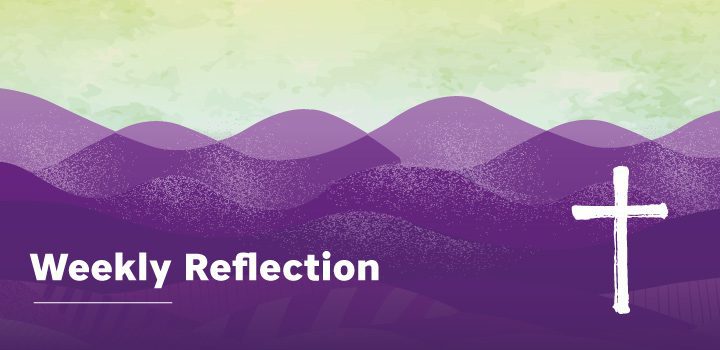

Readings: Joshua 5:9A, 10-12; Psalms 34: 2-3,4-5,6-7; 2 Corinthians 5:17-21; Luke 15:18; Luke 15:1-3, 11-32
But we had to celebrate and rejoice, because this brother of yours was dead and has come to life; he was lost and has been found. — (Luke 15:32)
Establishing a reconciled, inclusive community of peace, justice and love
Today’s Gospel recounts the parable of the prodigal son. Luke tells us of a family of two brothers and their father. The younger brother decides he wants to spread his wings and move away from the family. He asks his father for his share of what would, in time, be his inheritance to fund the life he wishes to live. He travels and, through questionable life choices, squanders his inheritance and becomes destitute. He looks back with remorse on the life he left with his father and older brother and thinks how much better off he would be if he returned to them.
He then journeys home, seeking comfort and peace with his father and older brother. The father, standing near his home, sees his younger son approaching from a distance. Without hesitation or question, he welcomes him home with open arms. The father feels such joy in having his youngest son home again that he wants to celebrate and gives directions for a feast to be prepared in his honour.
The older son has difficulty in accepting how his father takes his brother back without question and honours him with a celebration. The father in this story is like God, our Father. He is merciful, and his love knows no end. He shows to both of his sons that his love is enduring and remains present for them, particularly in times of repentance.
The father is building a family that shows mercy to each member. He ensures that there is a place for each member to be appreciated, listened to and supported. Such a family is a community, if you will, that provides a safe place for members to work together in support of each other while providing for the common good of all. Each member brings different offerings of knowledge and resources that help the community achieve what is best for all. There may be times when some can bring more to the table than others, but in the end, all collectively contribute to the well being of the community. Communities built on connectedness and consideration for others’ needs can become safe and healthy environments for their members to live in together.
Today, some wonderful examples of such connected, considerate communities can be found in Honduras. With rapid growth in the country’s mining industry, people have suffered under increased social violence and poverty. To address these issues, Development and Peace has partnered with Caritas Choluteca. They work with community and Indigenous leaders to keep their areas free of extraction projects. Caritas Choluteca trains and accompanies these leaders and supports their advocacy for policies that respect human rights.
How do we support those in our families or communities to ensure that they are included, respected and treated fairly? Have we shown mercy and forgiveness as God, our Father has taught us? What can we do here at home to help those in Honduras and other countries that suffer from their human rights being disrespected by Canadian companies?
Join Development and Peace in its advocacy for a human rights and environmental due diligence (HREDD) law. This law would force Canadian companies to conduct due diligence, by ensuring that the rights of people in foreign countries where they operate are not impacted on by their business practices. Should Canadian companies fail to put proper protocols in place, those who are affected by their neglect will be able to seek justice in Canadian courts.
Sign our petition that calls for the Canadian government to enact HREDD legislation. Spread the word and help us collect more signatures! Our action in solidarity can lead us towards a reconciled community of peace, justice and love for all.

